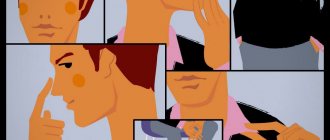- How often do we lie
- What will help you recognize a lie?
- Facial expression
- Sign language
- Features of the speech of liars
- Why do people lie
- How to respond to lies
The art of detecting lies has become popular not only among crime-fighting workers, but also among ordinary people. It’s not difficult to master, you just have to devote some free time to this process and you will discover amazing facts not only about your acquaintances and colleagues, but also your closest people.
How often do we lie
People lie to us more often than we think. We ourselves use deception to get what we want, but we don’t always admit it. There is nothing terrible about someone distorting facts if it does not harm other people. The latter includes slander, when one person deliberately tells a lie about another in order to belittle his abilities or elevate his own importance.
If someone deceives out of ignorance, considering his words to be the truth, then such a situation cannot be called a lie. He is in error and, not knowing it, leads those around him into it. There are no selfish motives, but a sediment remains in the soul.
People may not lie, but not tell the truth. This is also considered deception, because a person consciously undertakes this act in pursuit of a goal. For example, a child broke your favorite mug, but is silent about it because he is afraid of punishment. You are looking everywhere and he is watching. This type of lie is driven by fear.
More often we deceive our interlocutors when we do not know them well or know that we will not see each other in the future. Then fantasy takes precedence over reason and you, telling incredible stories, begin to believe in them. There is nothing wrong with such lies, but you need to be aware that you can also be deceived.
We spend more time on the Internet on forums or blogs. Everyone tries to exceed their true importance in society, to show themselves better than others, to remain noticed. This leads to addiction to lies. Having gained authority among the inhabitants of the forum, it will be unbearable for you to lose it and you will lie again and again, because no one will prove the words are incorrect.
We are used to lying at work. Telling lies to customers has become a habit for many companies if they want to gain trust. We also go beyond our merits to get the position we want.
THE TRUTH IS SOMEWHERE ON THE LEFT
Lying requires self-control and effort. Tension can be obvious or hidden, but it is easy to notice by looking closely at the left side of the body. It is less controlled than the right one. This is because the left and right sides of the body are controlled by different hemispheres of our brain.
The left hemisphere is responsible for speech and mental activity, the right hemisphere for emotions and imagination. Since control connections intersect, the work of the left hemisphere is reflected on the right side of the body, and the right hemisphere is reflected on the left.
What we want to show to others is reflected on the right side of our body, and what we actually feel is reflected on the left.
For example, if a person is right-handed and gestures a lot with his left hand, this may mean that he is lying, especially if his right hand is used less. Any inconsistency between body parts indicates insincerity.
“The brain is so busy making up lies that the body loses synchrony” (c) Dr. Lightman, “The Theory of Lies”
The face, like the body, conveys two messages at once - what we want to show and what we would like to hide. Disharmony in facial expressions indicates a contradiction. Symmetry always speaks of purity of intentions.
For example, if a person smiles, and the left corner of his mouth is raised less than the right, then, obviously, what he hears does not make him happy - he is feigning joy. It is also interesting that positive emotions are reflected evenly on the face, while negative ones are more noticeable on the left side.
What will help you recognize a lie?
What to do if we live in a world of lies and deception. How not to fall for the bait of swindlers and liars. There is only one answer - learn to recognize lies. This is the only way to protect yourself from people with evil intentions.
Learning to lie is not so difficult, especially if there have been no punishments for lying since childhood. But there is one circumstance that is not controlled by reason. This is the subconscious that knows about lies and reacts to them.
Scientists conducted an experiment: the subjects were divided into two groups, some told lies to unsuspecting people, and others listened to liars, knowing that they were being deceived. The facial expressions and body movements of the first and second were largely the same. This says that the subconscious, sensing deception, begins to react to it.
In the same experimental way, psychologists found out the basic movements, features of behavior and speech of liars and divided them into three groups:
Facial expression. Turning your eyes to the side, avoiding eye contact, tense lips, squinting your eyes. Sign language. Crossing arms and legs, tense posture, fidgeting in one place, twitching arms or legs, nervous movements, scratching the neck or nose. Features of speech behavior. Slow or accelerated pronunciation, confusion in facts, low voice.
These factors should alert you and make you understand that the interlocutor is hiding something. This behavior becomes especially noticeable if you have known the person for a long time or live with him. Therefore, couples who have been married for a long time or close friends intuitively understand that they are being deceived.
But if a stranger lies to you for personal gain, then you need to practice to figure it out. Observing people will help you become an expert in lying. Wherever you are, simply note for yourself the features of behavior, facial expressions and speech. Watch films and TV series, notice the good and bad acting of the actors, what mistakes they make when they act out their dialogue implausibly.
Head retraction
The person seems to be trying to hide. His neck is shortened, his chin is lowered low. This is an unconscious attempt to control your emotions. This behavior gives references to cave times. When a predator appeared, our ancestors had three options: run, fight, or pretend to be paralyzed so as not to attract attention. It is precisely the third option that modern liars use. They think that by shrinking into a ball, they can make the signs of lying less noticeable. But now you can figure out such a gesture.
Disappointed in the institution of marriage, Nadezhda Mikhalkova reflects on the film “Dad”
Choose tender and juicy pancakes according to your taste: from pork, chicken or beef liver
So the Russian people do not give up: why did the “guests” receive a “fly” in taverns?
Facial expression
According to numerous studies, looking to the right indicates that a person is telling a lie. The fact is that when we have to invent, this is how the eyes behave if we think about it and stop controlling the body. And the movement of the pupils to the right will indicate that the process of remembering is underway and the person is not lying.
Where the gaze is directed also matters. If downward, then the person comes up with tactile sensations or emotions, if upward, then he imagines a visual image, and to the side - sounds.
If the interlocutor deliberately avoids making eye contact, then he is trying to hide the truth or is afraid of getting confused. If a person deliberately glares at you, watches the reaction to his speech, then he guesses whether you believe it or not.
If someone is deceiving, then they subconsciously experience fear of exposure. Therefore, the facial expressions inherent in this feeling betray the interlocutor. When a person is afraid, he involuntarily raises his eyebrows and strains his eyes. At the same time, wrinkles appear between the eyebrows and in the outer corners of the eyes. Liars have tense lips and clenched teeth even during conversation.
Liars try to smile at you in order to gain your trust and create a friendly atmosphere. But this smile differs from a sincere one in many ways. The lips are too elongated and tense, one corner of the mouth is raised higher than the other (a gesture of contempt).
Repeatedly touching your own body
Rubbing your hands, for example, can be a sign of anxiety. A person does not feel safe, so he cannot find a place for himself. His movements are chaotic. He either tries to shake non-existent dust from his clothes, or searches his pockets for a handkerchief. Such fuss should distract the interlocutor from the meaning of the phrases, then the lie will be easier to pronounce. But you already realized that they are telling you lies, right?
Sign language
When a person cheats, he involuntarily makes the following movements:
rubs his earlobe; scratches nose; touches his neck; keeps his hands locked; crosses legs; fingering; taps his foot on the floor; He jerks his knee.
These are typical traits of a mentally ill person, but at the same time, if a liar does this, he tries to express calm and self-confidence on his face. Such a discrepancy between facial expressions and gestures should alert you.
Pay attention to how your interlocutor sits or stands. A liar subconsciously looks for support and leans on something nearby. Girls unconsciously focus attention on their beauty, so they run their hands through strands of hair or twirl them around their fingers.
Fear activates certain processes in the body, so the liar sweats heavily, his hands and legs tremble, his skin turns pale, he bites his nails or lips. The movements of a person who is lying are sharp and abrupt, the body is slightly bent, the posture is uncertain.
Often a liar reveals himself by covering his mouth. He tries to hide his lips with his hand. Of course, this happens involuntarily, but it hints that he is deliberately misleading you. Covering your ears says the same thing. Another liar puts a barrier between you. It could be a book, a cup of tea, coffee or any other item.
The next sign indicating dishonesty of the interlocutor is covering his eyes with his hands. The liar rubs his eyelids, eyebrows, tries to avoid direct gaze. This suggests that he is subconsciously ashamed of his bad deed.
When a person is tormented by a feeling of guilt due to a lie, he lacks air, his breathing becomes intermittent and frequent, his face turns red, and he continually adjusts his collar or tie. This is another sure sign that the interlocutor is lying.
How can you tell if your interlocutor is lying to you during a conversation?
Our interlocutors can sometimes lie to us, but in some situations this can lead to dire consequences, so it would be better to recognize lies immediately, in conversation.
Now we will learn how to easily and quickly recognize a lie.
Features of lies in the interlocutor’s speech and facial expression
Pauses
are a way to find an appropriate answer. If a person has a long pause after a question before answering, this means that he is driven into a dead end and cannot find an answer.
If you have suspicions that the interlocutor is lying to you, then you can ask an unexpected question, which may indicate a mismatch, then after a long pause you can accurately confirm the deception.
Changing intonation
– a consequence of natural fear, because during a lie a person begins to worry. If your interlocutor's voice begins to change for no particular reason, then he is most likely lying to you.
Asymmetry
- the first sign of a lie. Under normal conditions, the emotions on both sides of the face are the same, but when trying to deceive, the zygomatic muscles malfunction and begin to work incorrectly. Then emotions are expressed differently and asymmetry or different emotions can be seen on different halves of the face.
Duration of emotions
- the second sign of lying. In real conversations, people don't hold onto emotions long enough. Facial expressions can change three or four times a minute, and if the emotion does not change for more than two minutes, then this means that the emotion is not sincere. This indicates deception on the part of the interlocutor.
If you see a forced smile
, then she is deceitful, but there are also stronger emotions that do not go away for several days. Thus, depression can last a week; in depression, a person looks depressed and does not show positive emotions at all.
Late reaction
- the third sign of a lie. Sincere emotions appear instantly, and if your interlocutor, for example, laughs at a joke only after a while, then he is only simulating emotion and trying to deceive you.
Smile for no reason
- another sign of lying. A smile occurs when the body tries to relieve tension, and the presence of a smile for no reason means that your interlocutor is tense. Perhaps in such a situation the smile arises due to deception.
Look into the eyes
: Under normal circumstances, in a conversation, a person will look into your eyes most of the time, and if a person does not look into your eyes most of the time, then he is lying to you.
7 final signs of lying that will allow you to accurately identify a liar
- Inconsistencies in stories
: listen carefully to your interlocutor; if you begin to notice inconsistencies in the story, then he is lying to you. - Pause in conversation
: As already mentioned, a person takes long pauses when he wants to come up with a plausible answer. Constant pauses can guarantee a hundred percent lie. - Answer Avoidance
: Often, when a person cannot come up with an answer, he simply avoids the answer. This technique is used to avoid any inconsistencies in the story. - Looking away
: When trying to deceive, people become afraid to make eye contact and therefore look away. - Aggression
: when you ask a person an unexpected question, with the help of aggression he may try to hide his deception. - Conversation tension
: If a person is very withdrawn and tense during a conversation, then perhaps he is just trying to deceive you. - Pathos and oaths
: Liars often resort to exaggeration of facts.
Features of the speech of liars
If a person lies, it is reflected in the way he speaks. Here are the signs that you are being scammed:
Speech is not colored by emotions. If the interlocutor smiles or is surprised, he shows his feelings only during the break between phrases. The voice is pleasant and even sugary. A liar is afraid of being exposed, so he avoids direct questions, laughs it off or changes the topic. A lie is spoken much more quietly than the truth, so that the interlocutor focuses on the words and not the exposure. The deceiver's speech is very calm, as if rehearsed or too nervous, and is often interrupted and loses consistency. If you suggest moving on to another topic, the liar will happily do so to avoid detection. The peculiarity of liars is that they prove they are right with the phrases “honestly”, “have I ever lied to you”, “if you don’t want to, don’t believe me”. The liar embellishes the story with unnecessary details. The deceiver, before answering the question, will repeat it out loud or ask a counter question. Unknowingly, liars sit opposite the door. If you asked a clarifying question, and the interlocutor began to speak in a raised tone, ignore and be offended, he is hiding the truth. When a person lies, his mouth becomes dry. The liar's speech is constantly interrupted by something (coughing, yawning, taking a sip of water).
All of the above examples regarding gestures, facial expressions and speech are not direct, but indirect evidence. If you haven’t caught a person lying, then you shouldn’t slander him. Anyone can make a mistake, but it will be very difficult to correct the situation.
Therefore, before catching someone in a lie, find out if he is sick or if he has had any unpleasant situations that caused stress. A person may behave unusually if he did not get enough sleep or is tired at work. Consider all these factors and recognize true liars.
Analysis of verbal responses
Voice.
Changes in voice speed and tone can be good indicators of deception. The same evidence may be hesitation before answering or sudden stuttering or long pauses.
Excessive talkativeness.
A reason to doubt a person’s sincerity may be the fact of his answers to seemingly simple questions that require a direct and short answer. Instead, the liar begins to clarify unnecessary details and at the same time often seeks support from your agreement with his words.
Emotional reaction.
Monitor your interlocutor's behavior throughout the conversation. A truthful person, who has nothing to hide, reacts differently than a liar, whose reaction ranges spectrally from feigned nonchalance to aggressively indignant.
Examination.
In films, we quite often see how experienced investigators, with their questions, catch liars in discrepancies. Indeed, to verify truthfulness, you can remember the answers to some questions and ask the same questions over time and compare the words. Untruthful people often get confused, break off sentences in the middle, and laugh off awkward questions. At the same time, the frequent use of the same “rehearsed” mechanical answers most likely indicates the falsity of the data.
Don't fall for the tricks.
Often, when a person wants to hide his true motives, he resorts to a set of long-invented tricks. Frequent compliments, abrupt transitions from topic to topic after uncomfortable questions, distraction of attention to unimportant details can be an additional reason to doubt a person’s sincerity.
Why do people lie
Nobody will just deceive you. Sometimes people lie for selfish purposes, other times for good. Psychologists have identified several main reasons that push people to cheat.
Why do people lie:
To benefit. Insecure people solve problems with the help of others. If your friend cannot get a job, he will lie that the vacancies are filled or offer a small salary in order to still live at someone else’s expense. Or one colleague will slander another in order to get the desired position. To protect yourself. We have been familiar with such lies since childhood. We told our parents that we didn't break the cup, drop the plate, or offend the kids. This way we avoided punishment.
White lie. Deception does not carry malicious intent, but is done to help or not harm a loved one. This is possible in case of serious illness, departure, pregnancy and other circumstances. To attract attention. Many people make up tall tales about their personal life or work in order to interest their interlocutor. But, as a rule, such deception is revealed and only brings harm, not benefit. Lying allows you to gain control over a person. If your husband’s mother does not like his choice, then she will try to convince him in every possible way, putting you “in a bad light.”
More often, people who are insecure, infantile, or children deceive. Therefore, if you catch someone in a lie, then do not react too harshly, as you will only worsen the situation and force the interlocutor to defend himself.
Psychology, theory of insincerity of lies
All people lie every day
Just don't deny it. We all time in order to benefit, to “get away with it.” Time “ for the good ” of people who are dear and not indifferent to us. And who came up with this lie? After all, without her it is much better, and life is somehow bright in those moments when there is not a second of lies in it. Is it possible to make life bright and very truthful? A rhetorical question….
How to recognize a lie by gestures?
I wonder if we will stop lying when we learn that our lies can be exposed? Recognizing lies is extremely important for those people whose profession is connected with buying and selling, the criminal world... What can I say? Are there people who enjoy being lied to? It’s especially offensive if someone you trust so much deceives. After you experience a lie on yourself, you don’t want to trust or count on anyone at all. Every time we make a promise to ourselves not to trust anyone again, we, of course, break it, since not believing is just as impossible as not deceiving.
In order not to get burned again and to be prepared for lies in advance, there are various methods and methods that “warn” us about them. The main thing is that you have time to “ catch ” the moment of a true lie and accept it, subsequently ignoring everything that the interlocutor will say later.
How to respond to lies
First you need to understand the reason why you found yourself in the center of a lie. Maybe you yourself provoked your interlocutor with your gullibility. In any case, in order not to aggravate the conflict, you should follow the advice of psychologists.
How to respond to lies:
You may not notice that you have figured out your interlocutor, but draw the appropriate conclusions. It is better to do this if you are quick-tempered and straightforward. If you don’t know the person well, avoid further communication; if you are close, then talk about it in a different setting. Don't hold a grudge. Don't catch a liar lying. Tell him directly that you want to talk about the situation. Ask about the reasons, express dissatisfaction, but in a polite and unobtrusive manner. If a person is dear to you, explain to him how you felt when you learned about the deception or the fact of betrayal. You cannot change a person if he cheats again, only you can decide whether to forgive him or break off the relationship.
To avoid being deceived, learn the signs of lies and see through the insidious plans of deceivers. Unfortunately, in our society you will quickly master this skill, because you are faced with the application of knowledge in practice many times a day. Choose only sincere and honest people in your circle of acquaintances and friends, and then you will not have to be disappointed.
The man doesn't make eye contact
This is not always a clear sign of a lack of sincerity. A person may simply be embarrassed and feel insecure. Therefore, it is impossible to evaluate lies only on this basis. Associated gestures must also be taken into account. Many professional deceivers, by the way, in order not to give themselves away, will look you straight in the eyes, wanting to give their words more credibility. This is another reason not to rely only on this sign, but to evaluate it in conjunction with others.
With a wrap and buttons: trendy styles of dresses for spring for any figure
The number of twins born in the world is growing every year
Elegant shoes 2021: the hottest trends
DECEPTION IS STRESSING
Changes in complexion (pallor, redness, spots) and twitching of small muscles (eyelid, eyebrow) indicate stress experienced by a person and help to detect deception.
Tension, which manifests itself in frequent blinking, squinting or rubbing your eyelids, is an unconscious desire to close your eyes to what is happening. With rubbing gestures, our brain tries to block a lie, doubt or unpleasant sensation.
How comfortable or uncomfortable the interlocutor is can be judged by his pupils: their narrowing indicates dissatisfaction, dilation indicates pleasure. And by his eye movements it is easy to understand whether he is going to tell the truth or lie.
“Many people tend to consider shifting eyes to be evidence of a bad conscience. But, as you know, notorious scoundrels can calmly look you in the face.” (c) Agatha Christie
If a person averts his eyes, this does not mean that he is insincere. Often the one who looks intently into the eyes, trying only to appear open, is not completely honest.
Did you wash your hands?
If, when communicating with you, the interlocutor tries to put his hands in his pocket or close his palms, we can with a certain degree of confidence assume that he is hiding something. This feature is most pronounced in children.
Hiding your palms or keeping them open can be used against you even in a regular market. An experienced salesperson can see how your palms are positioned when you refuse a purchase and can understand how much you really need it. If you cover your mouth with your hand, then here we see a desire not to blurt out too much. This may be indicated by tension in the mouth muscles, as well as lip biting.
Posture is very important in determining a person's honesty. Let's say you observe a person in a tense or uncomfortable position. He can constantly squirm, trying to make himself more comfortable. This means that the topic of conversation is bothering him and he may not agree with it. Liars can lean and cross their legs. Usually, if a person is truthful, then his posture is relaxed and comfortable.










